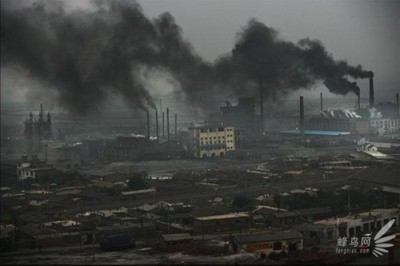A fast-growing grass known as "lu xin," which translates to green heart, may soon be the world's latest weapon in the fight against climate change.
The grass is effectively a carbon sponge, absorbing much higher levels of carbon dioxide than trees, according to Lei Xuejun, the director of the Carbon Cycle Research Center at the Central South University of Forestry and Technology in Hunan Province.
This week, Lei is in Paris for the COP21 climate change conference. He started cultivating the hybrid grass in 2013, and he has since led the research on it.
Hunan's Changsha County quickly identified the potential of the grass for its zero-carbon strategy. Changsha has allocated more than 20 hectares for planting over the past two years.
Changsha has also given Lei's team the needed financial support in order to optimize the grass.
The grass is similar in appearance to sugarcane or sorghum and regrows rapidly after cutting, growing around three to five rounds in a year.
Lu xin can also be ground and processed into the usual carbon products like paper, construction materials and fertilizers. The grass can also survive in high temperatures, drought and poor soil.
A hectare of lu xin can absorb more than 200 tons of carbon dioxide a year. On the contrary, trees can only hold around 15 tons per hectare a year.
According to Xu Heping from the Ministry of Science, the grass can lower the cost of absorbing carbon emissions and reducing the concentration of carbon dioxide in the atmosphere.
Changsha is hoping to use the grass to attain zero-carbon growth, according to Yang Yiwen, chief of the county committee of the Communist Party of China.
Lei said that Changsha must develop a way to make cultivating the grass profitable, encouraging farmers to plant it.
The local government of Changsha plans to introduce a system wherein polluting companies can purchase carbon products to offset emissions, said Yang.
However, Wang Guangjun, a professor of ecology, fears that the speed that the grass grows could have negative side effects, as invasive species are notorious for messing with the ecological balance of an area.



























